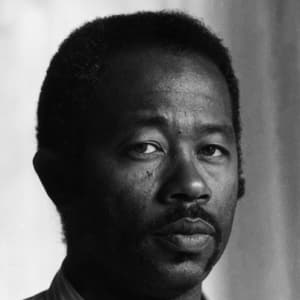
Eldridge Cleaver
Eldridge Cleaver wrote Soul on Ice, a best-selling collection of essays about his time in prison, and was the minister of information for the Black Panthers.
Synopsis
Born in Wabbaseka, Arkansas, on August 31, 1935, Eldridge Cleaver spent much of his youth in reform school and prisons in California. He began writing while incarcerated. Freed on parole, he joined the Black Panthers and published his prison essays in Soul on Ice. In 1968, he fled the country to avoid a return to prison. Cleaver was 62 when he died in Pomona, California, on May 1, 1998.
Early Life
Leroy Eldridge Cleaver was born on August 31, 1935, in Wabbaseka, Arkansas. Growing up, Cleaver witnessed his father beating his mother. Soon after a move to Los Angeles, California, his father left the family.
Reform School and Prison
As a teenager, Cleaver was charged with stealing a bicycle and sent to reform school. He would return for a second stay for selling marijuana. In 1954, Cleaver was sent to prison for possession of marijuana.
During his incarceration, Cleaver began to develop his own political philosophy. After his release in 1957, he raped an unknown number of women, both black and white. He felt that his rapes of white women were "insurrectionary" rapes, justified by what African Americans had suffered under a system dominated by whites.
In 1958, Eldridge Cleaver was put behind bars once more, this time for assault. There, he became inspired by Malcolm X. He also began writing, detailing his continuing philosophical evolution. Though still passionate about rights for African Americans, he rejected the anger that had motivated his rapes. With the help of his lawyer, his compelling essays appeared in Ramparts magazine. His work gained the attention of supporters who pushed for Cleaver's release, which happened when he was granted parole in 1966.
Joining the Black Panthers
In 1967, Cleaver joined the Black Panther Party as its minister of information. He became the voice of the activist group, coming up with attention-getting slogans and editing its newspaper. The next year, Soul on Ice, a collection of Cleaver's prison writings, was released and became a bestseller.
On April 6, 1968, Cleaver was involved in a shoot-out with police that left a fellow Black Panther dead. At first jailed, he was soon released on bail, which allowed him to continue his run for president on the Peace and Freedom Party ticket. However, Cleaver was then told he would have to return to custody.
Exile and Return
Rather than go back to prison, Cleaver fled to Cuba. During his time as a fugitive, he visited North Korea, North Vietnam, the Soviet Union, and China. Cleaver also travelled to Algeria, where he set up an international office for the Black Panthers before being kicked out of the group in 1971.
Cleaver next moved to France. He had a religious experience there before returning to the United States in 1975. He then proclaimed himself a born-again Christian, decried the socialist systems he had seen and wrote that "the American political system is the freest and most democratic in the world." Cleaver's charges from the shoot-out in 1968 were eventually reduced to assault and he was sentenced to community service.
Later Life and Death
Cleaver's later years saw him shift between different beliefs. He worked with Reverend Sun Myung Moon's Unification Church, became a Mormon and created "Christlam," which combined aspects of Christianity and Islam. His politics changed as well. After joining the Republican party, he ran for office several times and supported Ronald Reagan—whom he had formerly denounced—as president.
Cleaver also suffered from an addiction to cocaine. This resulted in several arrests, though he did not have to return to prison. A devastating head injury in 1994—which may have occurred in a drug-related attack—prompted him to recommit to evangelical Christianity. Cleaver died in Pomona, California on May 1, 1998, at the age of 62.




